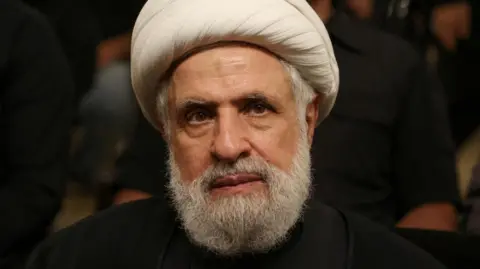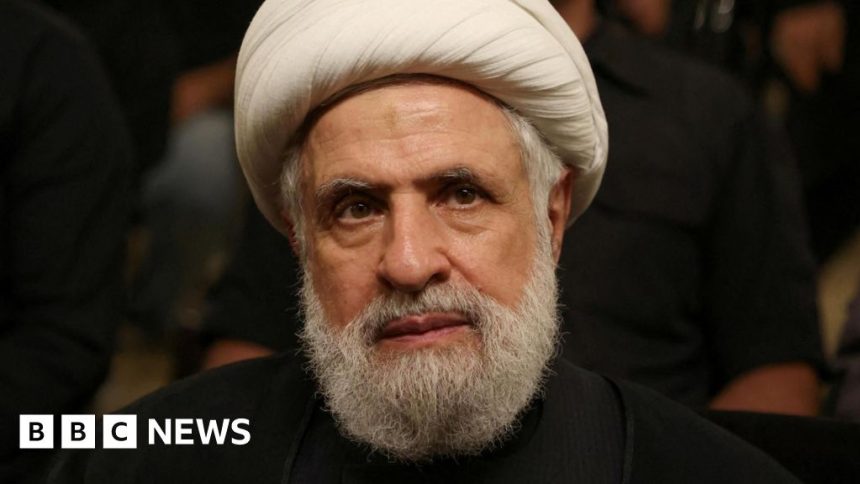Hezbollah announces Naim Qassem as new leader
 Reuters
ReutersHezbollah has announced the group’s deputy secretary general will become its new head.
Naim Qassem replaces long-term leader Hassan Nasrallah, who was killed in an Israeli air strike in Beirut last month.
He is one of the few senior Hezbollah leaders who remains alive, after Israel killed most of the group’s leadership in a series of attacks.
The appointment comes as the conflict in Lebanon intensified in recent weeks.
For more than 30 years, Naim Qassem was Hezbollah’s deputy secretary general and one of the group’s most recognised faces.
Hezbollah said he was elected by the Shura Council, in accordance with the group’s rules. His whereabouts are unclear, however some reports suggest he has fled to Iran, which is Hezbollah’s main supporter.
He was born in Beirut in 1953 to a family from Lebanon’s south.
Qassem was one of Hezbollah’s founding members and since Nasrallah’s death in an Israeli air strike he has made three televised addresses.
In one speech, he said a ceasefire was the only way Israel could guarantee the return of its residents to the north.
Announcing Qassem’s promotion, Hezbollah released a statement describing him as “bearing the blessed banner in this march”.
The statement also honoured the late Nasrallah and others killed in the conflict.
The new Hezbollah leadership was expected to be passed to cleric Hashem Safieddine, but on 22 October it was revealed that he had been killed in an Israeli air strike nearly three weeks prior.
Reacting to Qassem’s appointment on social media, Israel’s Defence Minister Yoav Gallant described it as a “temporary appointment” and “not for long”.
Israel has carried out air strikes across Lebanon in recent weeks, targeting what it says are Hezbollah’s operatives, infrastructure and weapons.
On Monday night, the Israeli military carried out air strikes in Lebanon’s eastern Bekaa Valley, an area where Hezbollah has a strong presence.
The Lebanese health ministry said at least 60 people were killed and more than 50 wounded.
The Israeli military has yet to comment on the attack.
Israel went on the offensive against Hezbollah after almost a year of cross-border hostilities sparked by the war in Gaza, saying it wanted to ensure the safe return of residents of border areas displaced by Hezbollah rocket, missile and drone attacks.
Over the past year, more than 2,700 people have been killed and nearly 12,500 injured in Lebanon, according to the country’s health ministry.
Hezbollah has attacked Israel with thousands of rockets and drones over the same period, and at least 59 people have been killed in northern Israel and the occupied Golan Heights.






